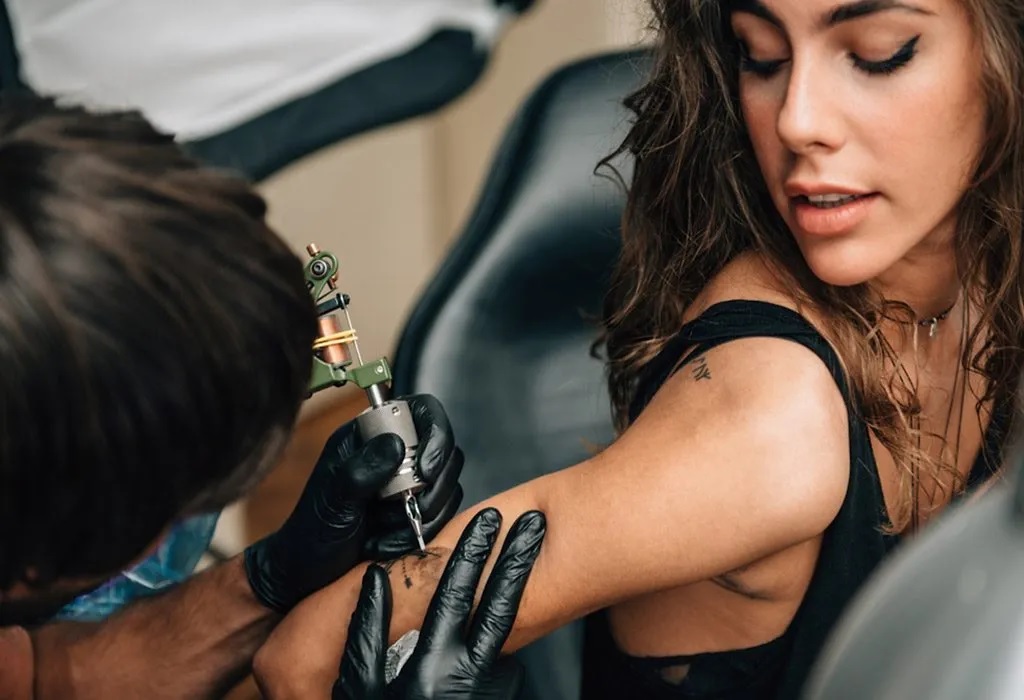People have been getting tattoos for centuries, and the practice has only become more popular in recent years. While tattoos are often seen as a form of self-expression, they come with a number of risks that people should be aware of before making the decision to get one. In this article, we will discuss the risks associated with tattooing and outline some precautions people can take to minimize those risks.

Infection
One of the most common risks associated with tattooing is infection. The skin is a barrier that protects our bodies from harmful bacteria and other microorganisms, but when it is punctured by a needle, that barrier is broken and we become susceptible to infection.
Allergic Reactions
Another risk of tattooing is allergic reactions to the ink. Some people may be allergic to certain inks and develop an itchy rash or even hives at the site of the tattoo.
Quality of Products
While getting a tattoo, the quality of the products being used is of utmost importance. If not selected properly, they can lead to long term adverse reactions. Keeping this in mind, it is very important to use the best tattoo kits for getting your tattoo done. This will not only give you the ultimate tattoo of your desire but will also prevent any unwanted allergic or infectious reaction from occurring.
Scarring
Tattooing can also cause scarring, especially if the needles are not sterile or if the artist is not experienced. The risk of scarring is greatly reduced if you go to a reputable artist who uses sterile needles and takes care to avoid hitting any major blood vessels.
Blood-Borne Diseases
Blood-borne diseases, such as hepatitis B and C, HIV, and tetanus, can be transmitted through contaminated needles. It’s important to make sure that your tattoo artist is using sterile needles and disposable gloves to minimize the risk of infection.
MRI Complications
There have been reports of people experiencing complications with MRI scans after getting tattoos. In some cases, the ink has been known to cause burns or swelling at the site of the tattoo when exposed to the strong magnetic field of an MRI machine. It’s important to let your doctor know if you have a tattoo before having an MRI scan.
How Do I Avoid These Risks?
There are a few things you can do to help avoid the risks associated with tattoos. First, make sure that the studio you go to is clean and reputable. Ask to see their health certificate to ensure they are following safety protocols. Also, be sure to ask about their sterilization process – all equipment should be sterile. Finally, be sure to avoid any studios that seem unprofessional or unsafe.
Additionally, there are a few things you can do to help reduce your risk during the tattooing process. First, make sure that you clean the area to be tattooed thoroughly beforehand. You should also avoid using any oils or lotions on the area, as these can increase your risk of infection. Finally, be sure to listen to your artist and follow their aftercare instructions carefully to help ensure proper healing.
You should also be very well aware of the type of tattoo method you are opting for. Typically people love to go for the stick and poke method. If you are also going for it, make sure you are using the best stick and poke ink for your tattoo in order to get your tattoo customized. It will help you get the best and long-lasting results without irritating your skin.
If you take these precautions, you can help minimize your risk of developing complications from a tattoo. However, it’s important to remember that there is always some risk involved in any invasive procedure – so be sure to weigh the pros and cons before making your decision.
Conclusion
Tattoos are a popular form of body art that comes with some risks. While the vast majority of people who get tattoos do not experience any problems, there are some risks associated with the procedure. In this article, we’ve outlined the most common risks and precautions you should take before getting a tattoo. By understanding these risks and taking steps to minimize them, you can ensure that your tattoo is as safe as possible.